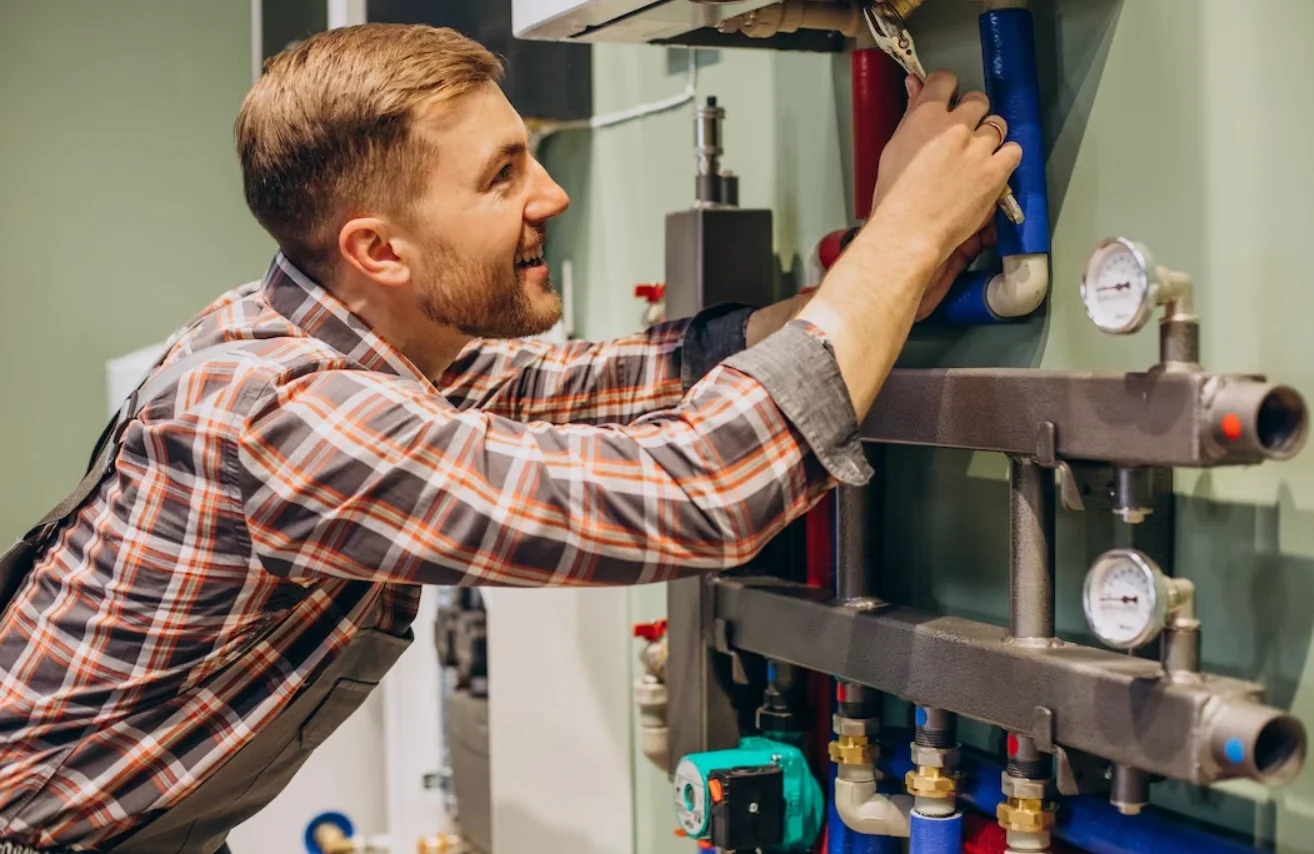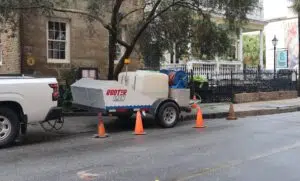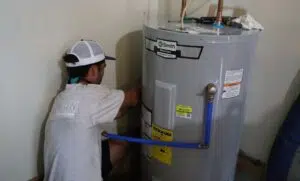Every home has a water heater. While you may not have thought much about yours since the day you purchased your house, the time comes that even the best water heater begins to reach the end of its service life and it’s time to look for a new model. Traditionally, electric and gas water heaters have been the standards for most homes, but in recent decades a number of creative alternatives have begun attracting widespread attention as well. The main advantages of these new options are in the areas of water and energy conservation, helping your home go green while providing the same level of water heat and comfort.
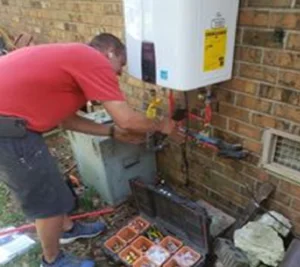
If you’re in the market for a new water heater and want to make the best choice for your family, we’ve got a guide to the different options available to you, outlining their pros and cons to help you settle on a model that will serve you well for many years to come.
Electric Water Heaters
Electric and gas water heaters are the two most popular types of water heater, even with the increasing popularity of alternatives. The pros and cons between electric and gas practically balance each other out, and the decision between the two often comes down to the availability and cost of electric power and gas in the home’s specific region as well as the house’s existing water heater setup. Adding an electrical outlet or running a new gas line are typically not worth the effort to switch from an electric to a gas water heater or vice versa, so most homeowners simply replace their outdated heater with a new one of the same type.
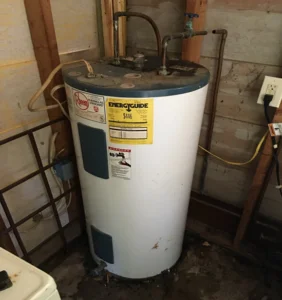
In terms of overall advantages, electric water heaters are generally less expensive to purchase. They are also much easier to install and operate than a gas model, following the conventions of other electrical appliances. Another advantage is a longer average life of service–electric heaters usually last two to three years longer than comparable gas models do.
Some homeowners are wary about the presence of a pilot light flame burning underneath their water heater, in which case an electric model is the clear choice. The water in an electric heater is warmed by rods inside the tank, making it a safer operating process than a gas-powered flame.
The disadvantages of an electric water heater are largely dependent on region and power availability. In some rural areas, electricity is costly and natural gas is very cheap. In those instances, the higher monthly cost for electricity can outweigh the initial savings on the unit within a few years and cost the homeowner much more money overall. For a home in an area with inexpensive electricity, however, the difference in operating cost between electric and gas can be negligible. In some cases a home may even have a solar array to capture electricity to power a water heater, further lowering the monthly electricity bill.
Gas Water Heaters
As stated before, the primary difference that most homeowners notice between gas and electric water heaters is the price of ownership. A gas heater costs more on average to purchase, but over the life of the equipment that cost is usually offset by the lower cost of natural gas compared to electrical power from the grid. Obviously this price difference varies widely based on the specific geography and the availability of both gas and electricity.
In terms of comfort, convenience, and access to hot water, gas heaters have an advantage over electric models. The flame underneath a gas heater heats water more quickly and evenly than the rods inside the tank of an electric heater, meaning that incoming cold water is heated and ready for use sooner. This is most noticeable in situations where hot water is needed in large quantities at the same time–for instance, when members of a large family take several hot showers consecutively in the evening. A gas water heater makes it less likely that the last people to shower will be left with cool water due to the equipment’s inability to heat new water quickly enough.
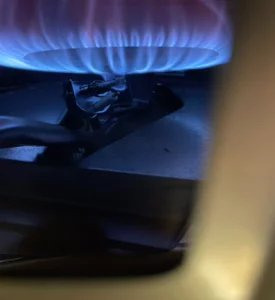
Safety concerns, again, are more prominent with a gas water heater. Particularly when a homeowner plans to be away from home for extended periods of time, they may be uneasy with a pilot flame burning constantly below their water heater. It is possible, of course, to extinguish the pilot light during absences and reignite it upon returning, but this creates additional inconvenience on the part of the owner compared with the simplicity of an electric unit.
Tankless Water Heaters
The development of the tankless water heater model has greatly expanded the options available to homeowners who want to get away from the traditional electric and gas water heaters. In short, a tankless heater uses a heating element to heat water as it enters the home for use in a dishwasher, laundry washer, kitchen, or bathroom–that is, the water is heated on demand rather than being heated and stored until it is needed.
The biggest advantage to a tankless model is the ability to access unlimited amounts of heated water on demand. Because there is no reservoir of heated water being used, there is no risk of running out of hot water–as long as the model installed has sufficient capacity to handle the load. This makes it critical during the research phase to choose a tankless heater that is large enough to handle the needs of the specific home, appliances, and family size.
By far the major drawback to a tankless heater is its higher up-front cost compared with traditional water heaters, as well as higher installation costs. It is necessary to have a tankless heater professionally installed, given the many safety and ventilation issues associated with the process. A professional plumbing team will also advise you on the ideal placement of your new heater and the size that would be appropriate for your home’s needs.
Despite the increased purchase and installation costs, in the long run a tankless water heater still saves money over a traditional model due to its far more efficient operation. While these savings are significant, they usually are not able to offset the high initial cost for a family that is sensitive to financial pressure.
Within the category of tankless water heaters, there are electric and gas models to choose from. The differences between the two are reflective of the differences between traditional electric and gas water heaters, mainly based on the local cost of electricity and gas and the ventilation requirements associated with burning natural gas to heat water.
Alternative Water Heater Systems
The water heating system in any home is one of its largest consumers of both water and power, whether in the form of electricity or natural gas. As such, it is a focus of research and innovation, as companies seek to develop options that allow homeowners to “go green” and save money on monthly utility bills. There are several creative water heating systems available and more being researched all the time.
Most of the notable alternative heating systems are ideal for very small applications, such as apartments or backup installations. They are very effective for heating small amounts of water quickly for uses such as dishwashing or a single shower, but are usually unable to handle the needs of a larger home in an affordable manner.
Solar heaters obviously use the energy from the sun to heat water, a very inexpensive method yet one that is dependent on weather. Most solar units are supported by a backup system or are themselves a supplemental unit intended to relieve dependence on the power grid.
Heat pump and hybrid water heaters take advantage of the earth’s natural warmth to heat water inside their tank. These systems are effective but have specific space and location requirements that prevent them from being ideal in all situations.
Other systems link a water tank’s heating system into the home’s central heating system–that is, its furnace. By using the same power to heat the home’s air and its water, there are significant cost savings available. Once again, this system works best for a small home or a home in a location where temperatures are mild and the furnace is not required to provide large amounts of warm air throughout the winter.
Finally, the development of smart and “connected home” thermostats have opened up the possibility of making even traditional water heaters much more flexible and efficient. For instance, turning off a water heater during the night or during extended absences using a smart thermostat can save large amounts of money compared with a model that heats water on a constant basis.
Professional Water Heater Advice and Service
For homeowners in the greater Charleston area who are looking to install a new water heater, Rooter-Man of South Carolina is available for advice and service. Our expert, trustworthy technicians can explain the differences between water heaters and how they will impact your family, providing quotes and answering any questions that you may have about water heaters and the rest of your home’s plumbing system.




